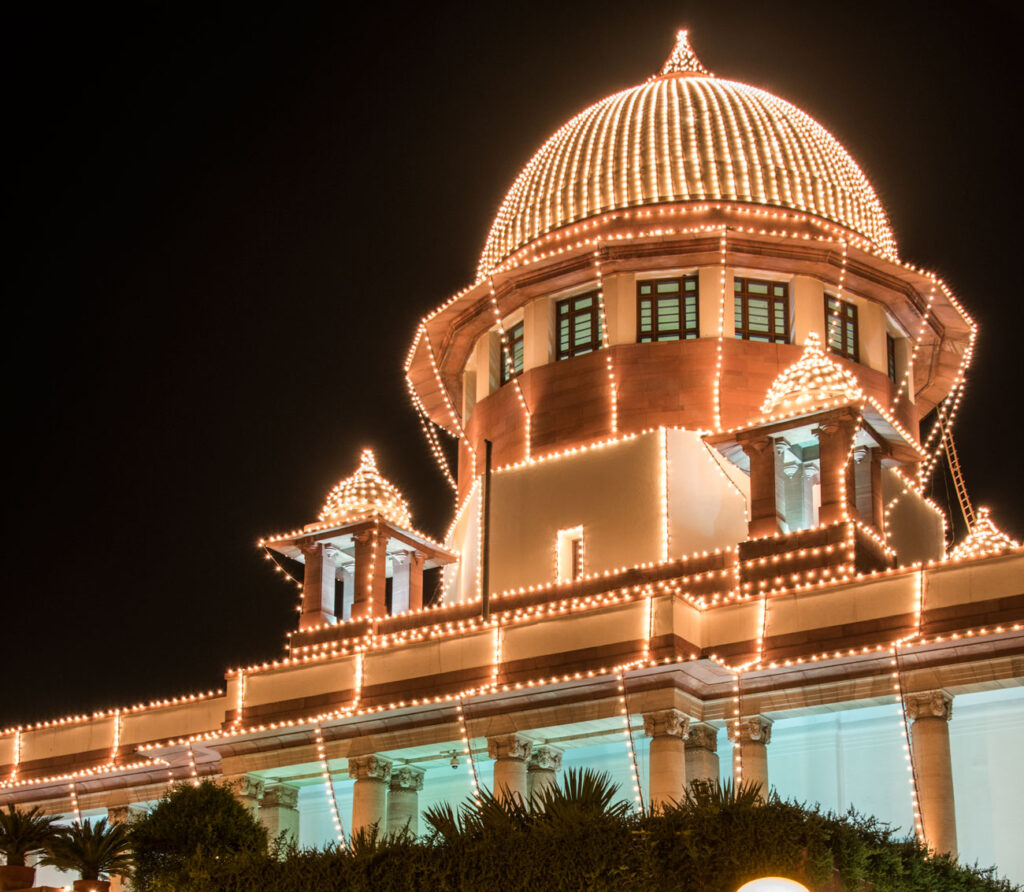New Delhi, Feb 2.
Chief Justice of India D.Y. Chandrachud observed on Thursday that the right to vote was a fundamental right of a citizen as it was part of his right to speech and expression.
“Right to vote is a fundamental right of the right to free speech of a citizen,” Justice Chandrachud said in a petition challenging the right of a candidate to contest election from two seats simultaneously.
The CJI is the second judge to air such views on this in open court.
Justice K.M. Joseph had also expressed similar views regarding the right to vote during another hearing in November last year.
“It is not correct to say that the right to vote is only a statutory right,” Justice Joseph had said.
He conceded that there are several precedents to the effect that it was only a statutory right. “But the effect of (Article) 326 has to be seen. This is a larger bench,” Justice Joseph said.
“Are you saying the Parliament’s legislative power will override the Constitution,” he asked the Election Commission.
“The Constitution has contemplated giving the right. That is the fundamental thing. The right to vote was given to (all those who have attained the age of) 21 years initially, and was lowered to 18 years.
“The ancillary law-making is contemplated for giving it teeth and flesh. The disqualification cannot be enlarged by the legislature. What are the disqualifications mentioned in Article 326 itself,” he asked.
Courts have declared the right to vote a statutory right…
Courts have over the years ruled that the right to vote was a statutory right created under Section 62 of the Representation of People’s Act (RPA), 1955. This implies that the right is subject to restrictions prescribed in the Act.
Section 62(5) says that no person shall vote if he is confined in a prison, whether regarding a jail term or is in lawful custody of police. So undertrials cannot vote.
The only exception to this rule are persons in preventive detention under any law for the time being in force. Convicts who are out on bail can also vote.
… doubts have been expressed repeatedly but the issue is yet to be referred to a larger bench
A two-judge top court bench had in 2009 questioned earlier court rulings that the right to vote was merely a statutory right. It wasn’t, Justices B.N. Aggarwal and G.S. Singhvi, had said, suggesting that the issue may be referred to a larger bench for clarity.
That exercise is yet to be undertaken.
In that case, the judges had held that the last-mile right of a voter to express himself through his vote was part of his right to free speech and expression. Hence it was a fundamental right.
Under our Constitution, Article 19(1)(a) provides for freedom of speech and expression. Voter’s speech or expression in case of election would include casting of votes, that is to say, voter speaks out or expresses by casting vote. For this purpose, information about the candidate to be selected is a must, the court had said.
It is not very accurate to describe it as a statutory right, pure and simple, the court has also said earlier.
The casting of vote in favour of one or the other candidate is tantamount to expression of his opinion and preference and that final stage in the exercise of voting right marks the accomplishment of freedom of expression of the voter. That is where Article 19(1)(a) is attracted.
Freedom of voting as distinct from right to vote is thus a species of freedom of expression and therefore carries with it the auxiliary and complementary rights such as right to secure information about the candidate which are conducive to the freedom.

